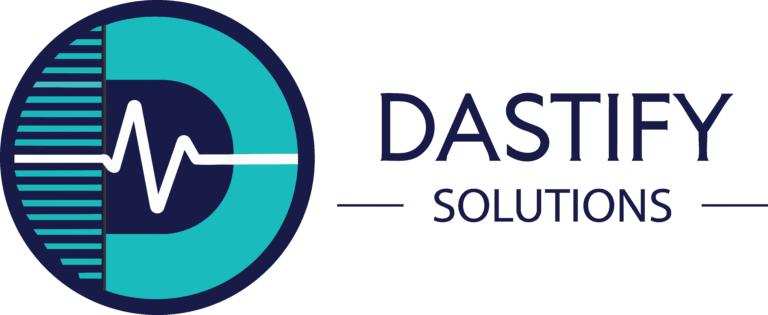What Are the Top Mental Health Billing Companies and Why You Need Them
The top 10 mental health billing companies in the USA are specialists that make life easier for mental health practitioners, psychiatrists, therapists, and behavioral health clinics by managing complex billing processes, improving revenue cycles, and ensuring full compliance with mental health regulations.
In this guide, you’ll discover the top companies in this field, their services, and how to choose the right billing partner for your practice.
Mental health billing companies have become essential for behavioral health practices dealing with administrative burdens, complex coding, and strict compliance demands. Unlike general medical billing services, these experts understand the unique challenges of mental health coding, authorization requirements, and parity law compliance that affect behavioral health practices daily.
This comprehensive guide covers company profiles, performance metrics, step-by-step selection processes, and practical advice to help providers maximize revenue while staying focused on patient care.
Understanding Mental Health Billing Companies: Key Concepts and Definitions
The Basics
Mental health billing companies are specialized service providers that handle complete revenue cycle management for behavioral health practices — including psychiatrists, psychologists, therapists, counselors, and group practices. They manage everything from claims submission to payment posting using expertise in mental health coding and compliance.
Key Services Offered:
- Claims Processing: Submission using ICD-10, CPT, HCPCS, and behavioral health-specific codes.
- Denial Management: Investigation, correction, and resubmission of denied or rejected claims.
- Credentialing: Ensuring providers are insurance-approved and licensed.
- Revenue Cycle Management: Full billing process from patient registration to payment.
- Compliance Management: Staying current on HIPAA, state regulations, and mental health parity laws.
Related terms include behavioral health billing services, psychiatric billing companies, therapy billing specialists, and mental health billing providers.
What Makes a Company Stand Out as Top-Tier?
Performance Metrics
- Clean claims rates of 88–97% (above industry average of 85%)
- Collection rates exceeding 90%
- Average A/R days under 30
- Denial rates below 5%
Specialization Criteria
- AAPC-certified billers with mental health expertise
- Knowledge of DSM-5 codes and session-based billing
- Experience with telehealth billing and modifiers
- Proven results with behavioral health practices
Technology and Integration
- Seamless integration with major EHR systems
- Real-time eligibility and benefits verification
- Automated claim scrubbing and e-submission
- Detailed reporting and performance dashboards
Why You Need Specialized Mental Health Billing in Healthcare
Mental health providers face complex billing challenges that demand specialized expertise. Studies show mental health practices experience 16% claim denial rates, compared to 5–10% for general medical services. This stems from strict authorization requirements, parity laws, and nuanced coding rules.
Key Benefits of Specialized Billing:
- Revenue Growth: Up to 30% higher collections through coding accuracy and denial management.
- Reduced Admin Burden: Focus on care while specialists handle billing.
- Compliance Assurance: Full HIPAA, state, and parity compliance.
- Improved Cash Flow: Faster claims and reduced A/R days.
How It Adds Up:
- 23–30% higher collections
- Clean claims improve from 85% → 95%+
- 15–20% more patient capacity
- 85% fewer compliance violations
Top 10 Mental Health Billing Companies Comparison Table
| Company | Clean Claims Rate | Collection Rate | Pricing Model | Specialization | Key Features |
|---|---|---|---|---|---|
| Dastify Solutions | 98% | 90%+ | % of collections | Multi-specialty behavioral health | Cloud-based RCM, telehealth billing, 30-state coverage |
| MedCareMSO | 95% | 92% | % of collections | Integrated platform | Real-time reporting, workflow automation, compliance adaptability |
| TheraThink | 90% | 88% | Flat rate / % hybrid | Solo & small practices | Transparent pricing, automated claim scrubbing |
| Resilience Billing | 93% | 91% | % of collections | Mental health clinics | Flexible solutions, compliance auditing |
| Psychiatric Billing Associates | 92% | 94% | % of collections | Psychiatrists & NPs | Payer negotiation, credentialing |
| MediBill RCM LLC | 89% | 90% | % of collections | Turn-key RCM | Advanced claim scrubbing, cash flow management |
| BHBS (Qualifacts) | 94% | 93% | % of collections | EHR-integrated billing | CareLogic integration, audit support |
| NCDS Medical Billing | 97.4% | 95% | % of collections | Established practices | 40+ years experience, MIPS compliance |
| Ensora Health | 91% | 89% | % of collections | Therapists & counselors | TheraNest integration, real-time insights |
| CureMD | 90% | 87% | Subscription / % hybrid | Telepsychiatry focus | EHR integration, AI analytics |
Note: Data is based on industry reports and company submissions. Individual results may vary by practice size, payer mix, and complexity. Companies listed in the comparison table, including Dastify Solutions, also appear in external industry directories that track medical billing providers. Dastify Solutions is featured on Designrush’s list of top medical billing companies, which maintains a verified and manually reviewed database of service providers
Step-by-Step Guide to Choosing the Right Mental Health Billing Company
Step 1: Get a Handle on Your Practice Needs and Performance
- Review your clean claims rate, denials, and A/R days.
- Document admin time spent on billing tasks.
- Analyze compliance issues and past audits.
- Identify your practice size, specialty, and payer mix.
- Compare current in-house billing costs vs. outsourcing ROI.
Step 2: Research and Compare Companies
- Shortlist 3–5 companies with mental health specialization.
- Request proposals, case studies, and client references.
- Verify AAPC certifications and HIPAA compliance.
- Assess technology integration and reporting transparency.
Step 3: Implement and Monitor Performance
- Define KPIs: clean claims rate, collection %, A/R days.
- Set a 30–60 day implementation timeline.
- Schedule regular performance reviews and optimizations.
Common Mistakes to Avoid When Picking a Billing Partner
- Mistake 1: Choosing based only on cost instead of specialization.
- Mistake 2: Not verifying coding and compliance expertise.
- Mistake 3: Failing to define metrics and reporting expectations.
Pro Tip: Start with a 30–60 day trial using measurable KPIs before signing a long-term contract.
Real-Life Example: Success Story
Case Study: Multi-Location Therapy Practice Boosts Collections by 23%
Initial Challenges:
- Clean claims rate: 82%
- A/R days: 47
- Denial rate: 18%
- 60% of admin time spent on billing
Steps Taken:
- Selected a specialized mental health billing company after vetting 5 options.
- Completed 45-day setup: EHR integration, staff training, and credentialing.
- Added automated eligibility verification and denial management.
- Set up monthly KPI tracking and reporting.
Results:
| Metric | Before | After | Improvement |
|---|---|---|---|
| Clean Claims Rate | 82% | 96% | +14 pts |
| A/R Days | 47 | 28 | -19 days |
| Collection Rate | 76% | 91% | +15 pts |
| Monthly Revenue | $185,000 | $227,500 | +23% |
| Denial Rate | 18% | 4% | -14 pts |
| Admin Time | 60% | 15% | -45 pts |
Within six months, the practice boosted revenue by 23%, reduced admin work, and expanded services.
Frequently Asked Questions About Mental Health Billing Companies
Q1. What do mental health billing companies charge?
Most charge 3–8% of collected revenue (average 5–6%). Premium providers deliver higher ROI via stronger collections.
Q2. How long does it take to switch billing companies?
Implementation typically takes 30–60 days; larger practices may require up to 90 days.
Q3. Do they handle telehealth billing?
Yes — top firms like Nexus IO, TheraThink, and CureMD are experts in telehealth billing and modifier compliance.
Q4. What’s the difference between general and specialized billing?
Specialized billers know DSM-5 codes, therapy sessions, and parity laws, reducing denials and boosting revenue.
Q5. How can I verify HIPAA compliance?
Request BAAs, data security proof, and audit documentation. Look for certified cybersecurity programs.
Q6. Can billing companies help with credentialing?
Yes, most offer full credentialing and re-credentialing services with insurance networks.
Conclusion: Key Takeaways for Choosing a Mental Health Billing Partner
- Specialization: AAPC-certified mental health billing experts.
- Proven Metrics: Clean claims ≥ 90%, collections ≥ 88%.
- Integration: Smooth EHR and software connectivity.
- Compliance: HIPAA, parity, and telehealth knowledge.
- Customer Support: Responsive and dedicated account management.
Partnering with a top-rated billing company typically increases revenue by 20–30%, reduces admin time, and enhances compliance security, letting you focus on what truly matters: patient care.
Next Steps: Contact 2–3 companies that align with your needs and review their proposals. The right billing partner becomes an extension of your practice — improving collections, reducing stress, and driving growth.


